Seven Blind Women Filmmakers
7 Zan Filmsaz-e Nabina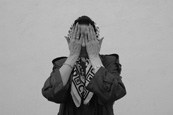
- Talking to the Wall (Dir: Sara Parto)
- Death of the Witness (Dir: Shokoofeh Davarnezhad)
- Path of Life (Dir: Narges Haqiqat)
- Last Night Notes (Dir: Banafsheh Ahmadi)
- Burning Fire (Dir: Mahdis Elahl)
- Love (Dir: Neda Haqiqat)
- Good Night (Dir: Naghmeh Afiyat)
IRAN / 2008 / Persian / Color / Video / 116 min
Head Director, Project Designer, Producer: Mohammad Shirvani
Episode Directors: Sara Parto, Shokoofe Davarnejad, Narges Haghighat, Banafshe Ahmadi, Mahdis Elahi, Naghmeh Afiat, Neda Haghighat
Editors: Mohammad Shirvani, Fatemeh Sadeghizadeh
Music: Mehrdad Balouchian
Production Companies: Documentary & Experimental Film Center, Roya Bin Media International
Source: Iranian Independents (Mohammad Atebbai)
This omnibus film consists of shorts shot by blind women, recording their daily lives and their families, friends, and lovers. Quiet time cooking and doing manicures, loving conversations with husbands and children, a woman’s voice raised in anger toward the doctor who caused her blindness. The films, created by using the senses of hearing and touch, are full of feeling for their subjects. There are six shorts, including the masterpiece “Good Night,” which combines a scene of the director and her husband talking sweetly about their first meeting as they fall asleep, and a soliloquy where the director confronts the audience about the ambiguity of differences between herself and people who are not blind. Although the title indicates seven women, one piece was dropped due to fears of censorship in Iran.
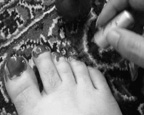
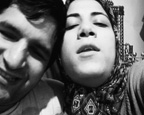
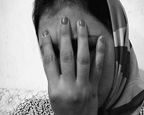
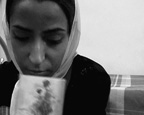
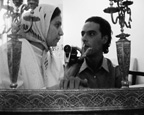
[Director’s Statement] In Spring 2004, I decided to answer an old question in my mind. What would I do if I, as a film director, became sightless? I was wondering if I could continue filmmaking. This film was made by a number of blind women filmmakers to answer that question. I taught them how to narrate their own stories through the language of cinema and with small digital cameras, and they also taught me how to see the world with the third eye on my forehead. The result of this experience is a feature episodic documentary: Seven Blind Women Filmmakers.
 Mohammad Shirvani
Mohammad Shirvani
Born in 1973 in Tehran, Mohammad Shirvani grew up in a religious family that did not permit children to enter the world of cinema. He joined the army, at his father’s insistence. In the meantime, he started to study painting at college and fell in love with cinema. He wanted to make films but he had to finish his 10-year commitment (instead of the standard two years) to the army. Shirvani’s first short film, The Circle, was selected for the International Critics’ Week at the Cannes International Film Festival in 1998. He has made seven short fiction films and six feature documentary and experimental films, which have been presented at more than 200 international festivals and have won numerous prestigious awards. President Mir Qanbar (2005) was shown at YIDFF 2005. |
